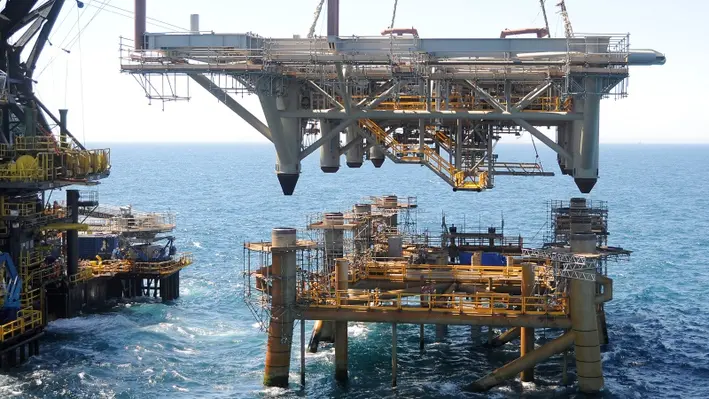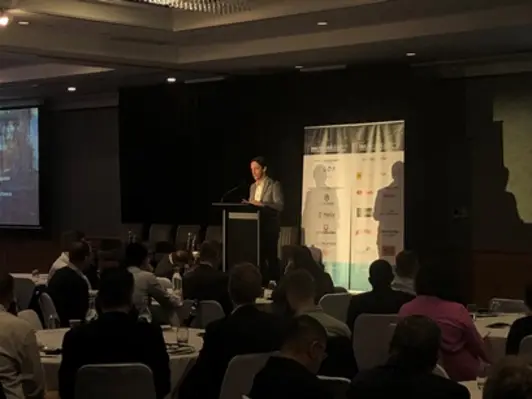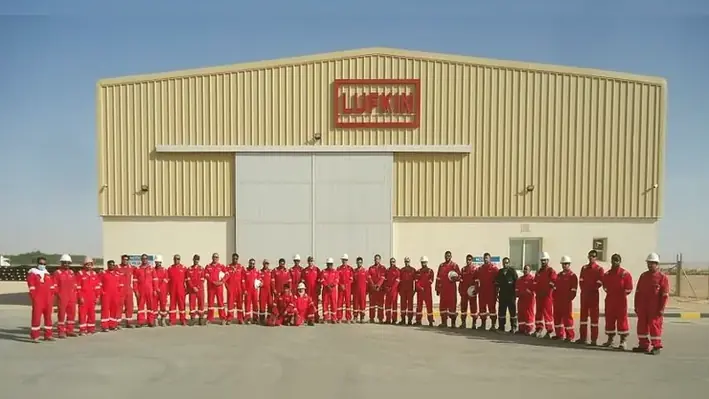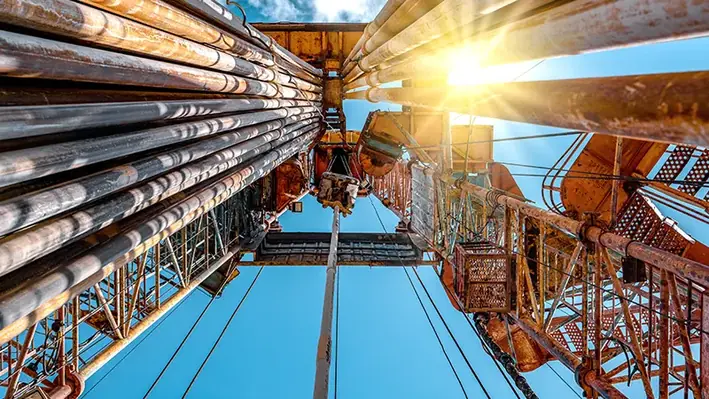 The recent 'Decommissioning and Abandonment Australia 2023' conference held in Perth saw many insightful presentations from a distinguished list of speakers. On the legal and regulatory side, Ben Adamson, a lawyer from HFW, an international law firm specialising in offshore energy and maritime law, provided a diverse audience with an in-depth dive into Australia’s offshore decommissioning regime.
The recent 'Decommissioning and Abandonment Australia 2023' conference held in Perth saw many insightful presentations from a distinguished list of speakers. On the legal and regulatory side, Ben Adamson, a lawyer from HFW, an international law firm specialising in offshore energy and maritime law, provided a diverse audience with an in-depth dive into Australia’s offshore decommissioning regime.
Ben kicked off his presentation with a briefing on the international framework relevant to decommissioning, which is driven primarily by United Nations Convention of Law of the Sea (UNCLOS) and the International Maritime Organisation (IMO). He then transitioned his presentation to discuss Australian legislation designed to enforce local decommissioning obligations. Of particular interest were his comments comparing and contrasting various national regulatory regimes, which appear to vary significantly between countries and offshore regions.
Ben pointed out that nothing in the Australian offshore oil and gas industry happens in a vacuum. An overlay of international laws and conventions exists that will continue to have a real effect on how Australia regulates the large pipeline of decommissioning work set to take place over the next two decades.
Revamped regime
The most important parts of the Australian offshore decommissioning regime are set out in the Offshore Petroleum and Greenhouse Gas Storage Act 2006 and its various regulations. Parts of the Act relevant to decommissioning underwent a major overhaul in 2021 to make the legislation fit for purpose and to respond, in part, to an unfortunate series of events where the decommissioning of an Australian FPSO and associated offshore field fell at great cost to the Australian taxpayer following the insolvency of the titleholder.
As Ben set out, the Australian government appears anxious to avoid a repeat of such events. The central pillar of the revamped Australian decommissioning regime is that titleholders must maintain and repair all structures, equipment and property brought into a field. Once the structure, equipment or property is no longer in use, titleholders must remove it. If the current titleholder is not available, or is unable or unwilling to undertake decommissioning, the Australian government has the power to bring former titleholders (as well as a range of other parties) back to decommission the offshore asset.
Trailing liability
The most important and topical of the changes to Australia's offshore decommissioning regime is what Ben described as trailing liability. Common in some other offshore jurisdictions around the world, trailing liability means that the government has the power, as a last resort, to 'call back' a past titleholder to remediate the environment or remove property. In that context, Ben raised some pertinent questions such as what would or could occur if at some distant point in the future a plugged well began leaking oil. Who will (or should) be brought back under a trailing liability regime to remediate it? Is it fair to force a former titleholder to decommission a well where that titleholder was at some point operating the field, but was otherwise not responsible for drilling or plugging the well?
In addition, Ben canvassed a number of other as-yet unresolved aspects of Australia's new decommissioning laws that arise from trailing liability. For example, what is the fair approach regarding small-percentage titleholders that form part of a joint venture comprising the titleholder? In the event that a former titleholder must decommission an asset, should they be entitled to tax breaks? Further, as Ben put it, can titleholders ever get a 'clean break' from a field after legitimately divesting their interest, if the spectre of trailing liability exists in perpetuity? As Ben concluded, current Australian decommissioning laws do not fully address these tricky issues, as well as a host of other issues raised by the new regime.
The second important point under the new Australian framework is that surrender of titles can only occur with the consent of the regulator. If a titleholder has not done the necessary decommissioning and the field is nearing the end of its life, Ben pointed out that with the passage of the amendments to the legislation, it will be difficult for the titleholder to transfer title, especially to a more speculative entity attempting to extract profit from an aging field.
In light of the major overhaul to Australia's decommissioning laws, Ben's opinion was that the most interesting aspect of Australia's updated decommissioning regime is how the regulator will manage its growing regulatory burden while upholding Australia's decommissioning obligations under international law. This is a complex and involved area that will evolve over time.
Increased accountability from titleholders
In terms of the role the Australian oil and gas regulator plays, the revamped decommissioning regime hands the regulator a new arsenal of powers to enforce titleholders' decommissioning obligations. Broad powers now exist to monitor and if necessary, intervene to stop, changes to the control of a titleholder, and passage of title from one titleholder to another.
Now, a change of ownership at the level of the titleholder is firmly within the regulator's grasp. Ben stated that players in the market can expect the regulator to act should it conclude, for example, that the entities taking control of a titleholder are not suitably resourced or experienced, or do not have the appropriate financial backing to carry out decommissioning. Before concluding his remarks about the new Australian regime, Ben reiterated that the trailing liability laws and powers to intervene in changes to control of the titleholder do not directly apply to contractors, employees, banks or customers.
The second part of Ben's presentation was a practical discussion on what a typical decommissioning contract may look like from a risk management perspective. He prefaced the discussion by setting out the typical options presented to those engaged in work offshore: either transfer risk, or accept it, insure against it, and price it in. Although decommissioning is a highly specialised undertaking, in Ben's view, the major themes and principles underlying contracts typically found in the offshore oil and gas sector would be relevant for offshore decommissioning contracts.
The offshore industry is a unique environment and there have been, over a long period of time, contractual terms developed that deal with the unique risk and liability issues faced in the offshore setting. Ben was clear that the typical knock-for-knock indemnity arrangements so common in the wider offshore and maritime world would likely be retained in decommissioning contracts, because these terms allowed contracting parties to either transfer risk, or assume it and insure against it.
Dealing with waste
Perhaps the biggest difference between typical offshore contracts and decommissioning contracts is how waste is dealt with. This aspect of Ben's presentation was directed to those in the audience who are preparing to deal with the vast volume of waste equipment, assets and material that is expected to be generated over the coming decades as Australia tackles its offshore decommissioning task. The big questions in this space are: what is to be done with the waste (some of it clearly hazardous) and crucially, how risk and title in the waste may be transferred between contracting parties. Ben recounted the difficulty his clients experienced exporting Australian offshore oil and gas waste overseas. As a final parting word, he challenged those present to develop local, home-grown waste disposal alternatives to avoid the issues arising in sending Australia's hazardous waste overseas.





